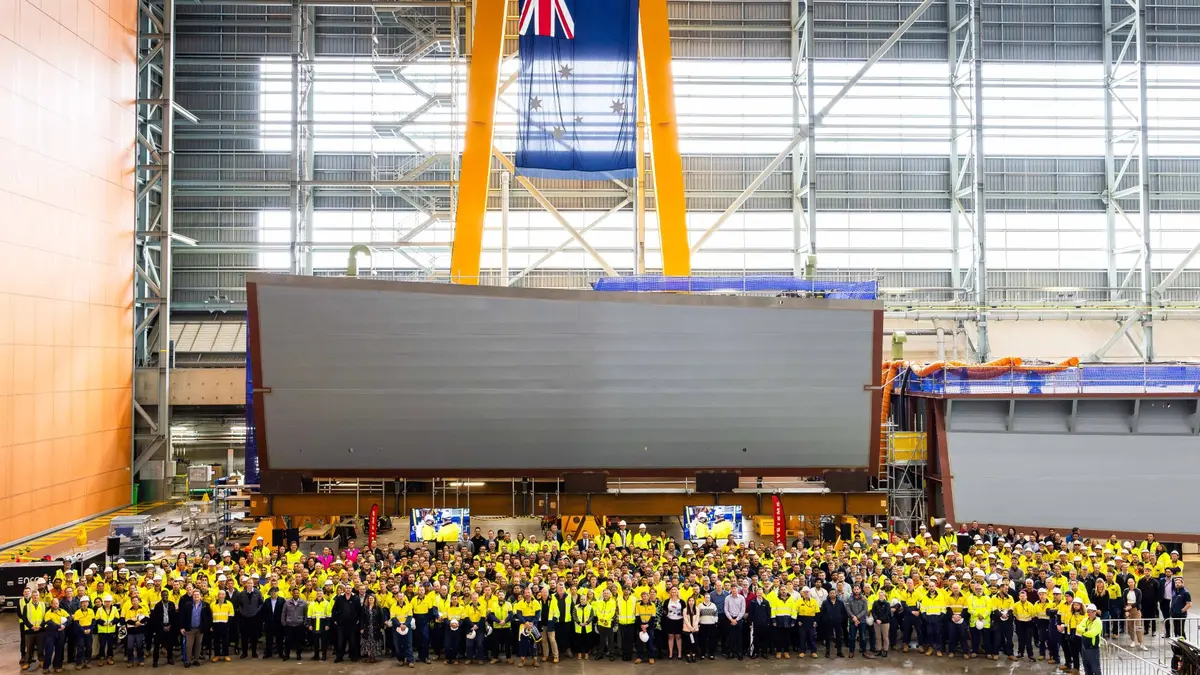Royal Australian Navy Hunter Class Frigate Program has successfully completed its Preliminary Design Review (PDR). The review, which started in July, is a technical assessment that ensures the design is operationally effective and underpins the more detailed work that will now be undertaken. More than 1,800 people are now working on the Hunter program, which is transforming Australia’s shipbuilding industry by helping build a world-class, continuous naval shipbuilding capability. A celebratory event to mark the completion of the PDR was held at the Company’s Osborne shipyard to mark the milestone. Companies from across Australia are working with BAE Systems to support the manufacture of the first batch of three Hunter class frigates. It is anticipated the program will create and sustain more than 5,000 jobs at BAE Systems and the wider Australian defence supply chain, including up to 1,000 apprentice and graduate roles.
BAE Systems Australia’s Managing Director Maritime, Craig Lockhart, said: “The Hunter Class Frigate Program has come a long way from initial head contract signing, to the acceptance of the shipyard, start of prototyping work, and commencement of the first Schedule Protection Block. The completion of the preliminary design review is another significant step forward for the program which is developing Australia’s sovereign industrial capability and is growing the nation’s engineering workforce. Through this national endeavour, we are committed to maximising opportunities for Australian industry. More than 80 contracts have been placed with Australian businesses to support the program.”
The Hunter-class frigate is a future class of heavy frigates for the Royal Australian Navy (RAN) to replace the Anzac class. Construction is expected to begin in 2023, with the first of nine vessels to enter service in 2031. The genesis of the Future Frigate Program came in 2009, when the Rudd government’s Defence White Paper signalled Australia’s intent to “acquire a fleet of eight new Future Frigates, which will be larger than the Anzac-class vessels” with a focus on anti-submarine warfare. With an initial tender expected in 2019–20, in 2014 the Abbott government announced that work had been brought forward, funding a preliminary design study focused on integrating a CEAFAR radar and Saab combat system on the hull of the Hobart-class destroyer.
Following a report by the RAND Corporation into options for Australia’s naval shipbuilding industry, the Government announced an $89 billion naval shipbuilding plan. This plan brought the schedule of the Future Frigate Program forward by three years and announced a “continuous onshore build program to commence in 2020” in South Australia. A competitive evaluation process was announced in April 2016, and a request for tender was released in March 2017 to three contenders: Navantia, Fincantieri, and BAE Systems as part of a competitive evaluation process.[13] The program is expected to cost AU$35 billion. In June 2018, the BAE Systems Type 26 frigate was selected as the winner.











